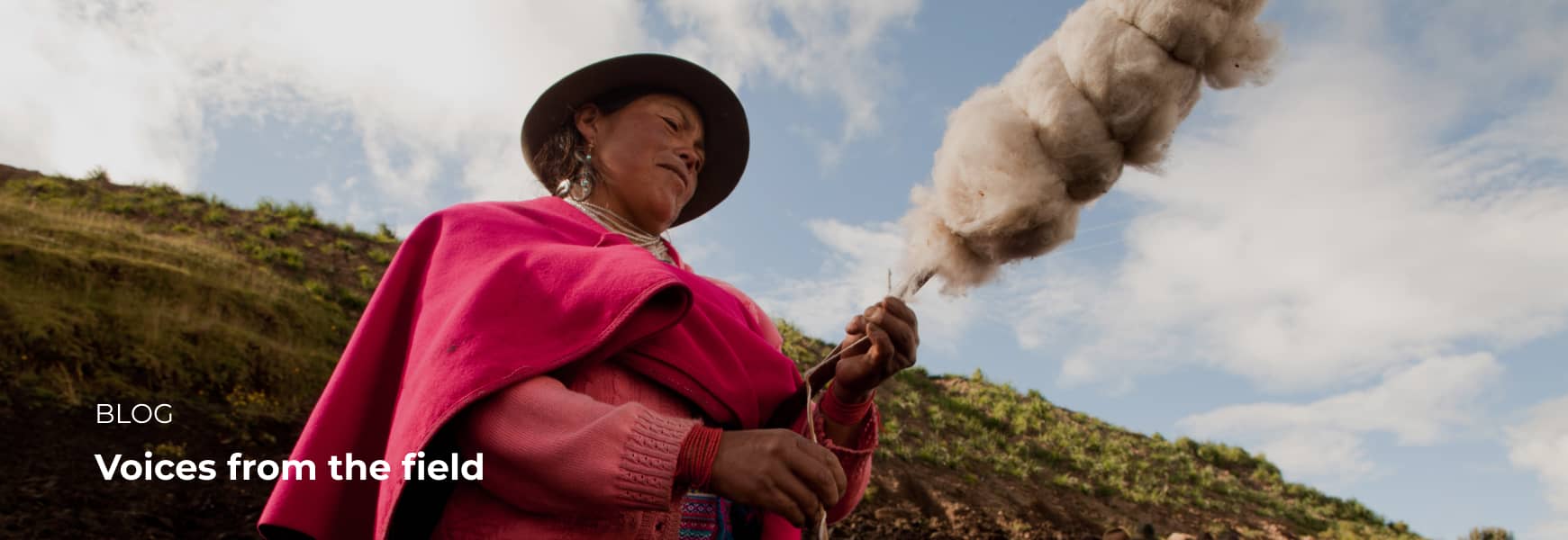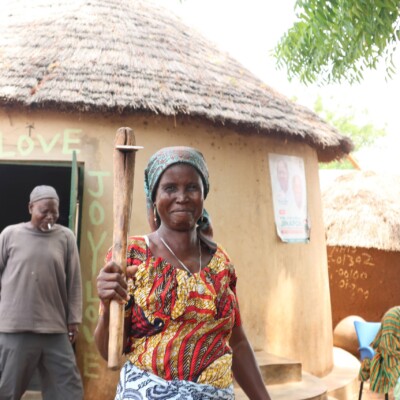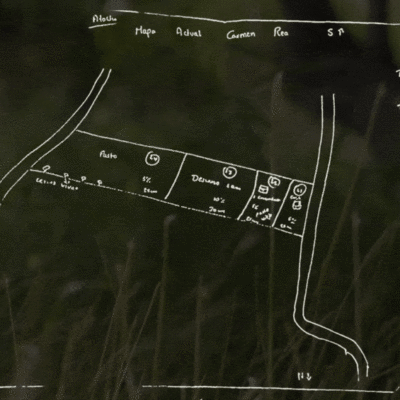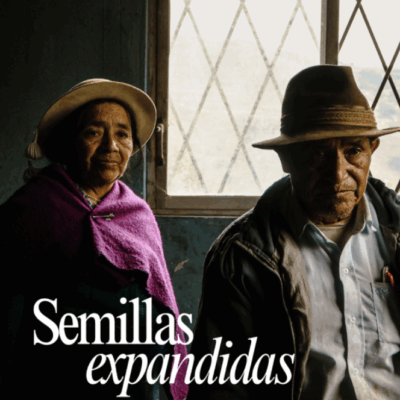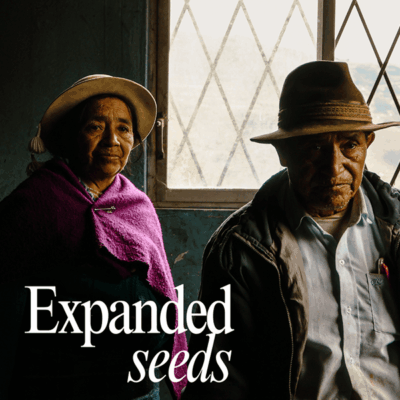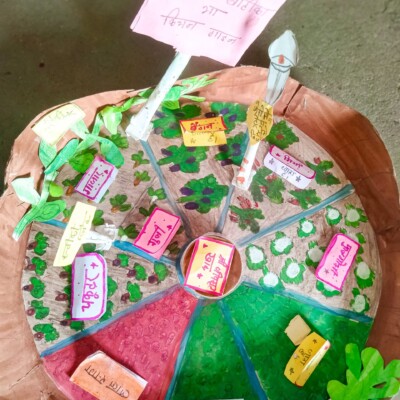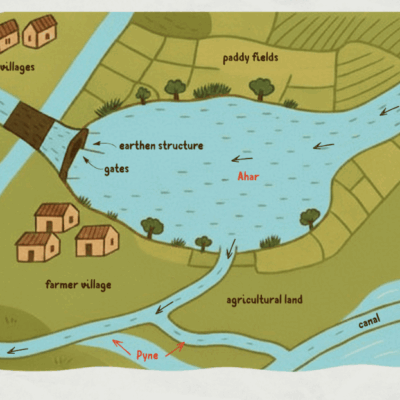Scaling Agroecology in West Africa with Community-Led Agroecology Committees: Lessons for Facilitators
Partnerships that leave communities strong, self-reliant, and resilient have been at the core of the work of Groundswell International and its partners in West Africa. A key part of this work is training field teams to facilitate community-led approaches and strategies to scale agroecology, combining learnings from different countries. Earlier this year, member organizations from Burkina Faso and Ghana participated in a series of trainings and pilot programs aimed at helping communities organize themselves to promote agroecology through agroecology committees. These committees, first developed …
Planning Climate-Resilient Farms with Hand-Drawn Maps and Satellite Images
High in the Ecuadorian Andes, two farming communities, Cuellaloma in Chimborazo and Atocha in Cotopaxi, are redrawing the future of their land, quite literally. Farmers gather to sketch their chakras—traditional biodiverse Andean plots—as they want them to be. These hand-drawn maps help farmers plan strategically for food security, income, and resilience in the face of a changing climate. The chakra is the heart of daily life for Kichwa families in the Andes. These ancestral systems enable communities to ensure food security, generate an income, pass down traditional knowledge, and preserve fa …
Semillas expandidas: Exploraciones sobre mercados locales en América Latina y el Caribe
Esta multimedia te llevará a Ecuador, Guatemala, Honduras y Haití, donde organizaciones campesinas e indígenas muestran de qué manera estrategias como las reservas de granos, la conservación de semillas, las ferias agroecológicas y las microempresas rurales fortalecen la soberanía alimentaria y convierten a los mercados en motores de resiliencia y bienestar comunitario.
Expanded Seeds: Exploring Local Market Dynamics in Latin America & The Caribbean
This multimedia story takes you to Ecuador, Guatemala, Honduras, and Haiti, where peasant and Indigenous organizations show how strategies like grain reserves, seed conservation, agroecological fairs, and rural microenterprises strengthen food sovereignty and make markets engines of resilience and community well-being. Available in English and Spanish.
How This School Kitchen Garden Is Transforming Meals and Homes in Bihar, India
At Utkramit Madhya Vidyalaya, an upper middle school in Bihar with just over 250 students, learning now stretches beyond the classroom walls. In a small garden beside the school, children crouch between rows of local vegetables, their hands dusty with soil as they water, weed, and harvest. The patch of land, once unused and barren, has transformed into a living classroom where tending the earth is becoming as much a part of children’s education as reading and math. Students participating in the school kitchen garden initiative at Utkramit Madhya Vidyalaya Learning by doing The transformation b …
Restoring Ancient Ahar-Pyne Water Systems: A Rebirth of Traditional Farming Practices in India
In the flat farmlands of Surungabigha in Southern Bihar, a dry body of water had been quietly fading into memory. The ahar-pyne — a traditional irrigation system developed by smallholder farmers — had long been abandoned. The land around it was barren, weeds growing in clumps where water once flowed. For local farmers, it was a visible reminder of colonial times, when British-imposed “modern” irrigation methods and land policies pushed aside community-built systems and the knowledge that once kept these lands fertile. But over the past year, the ahar in Surungabigha has begun to chan …

